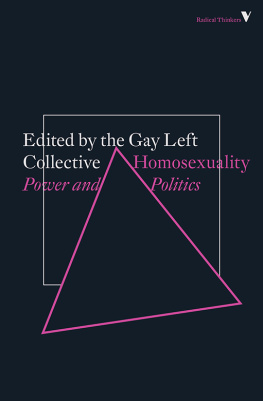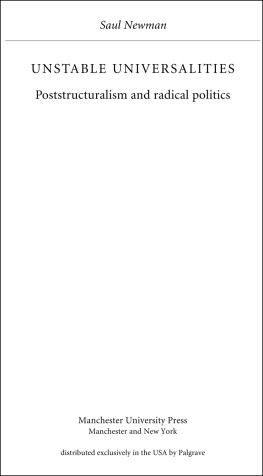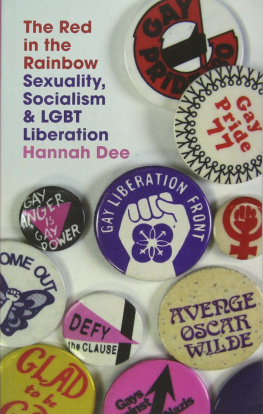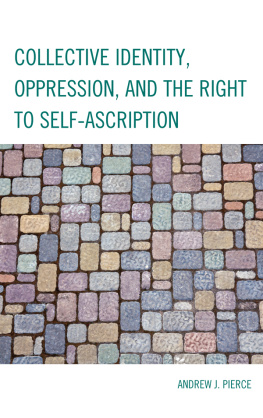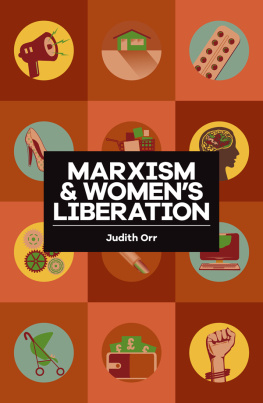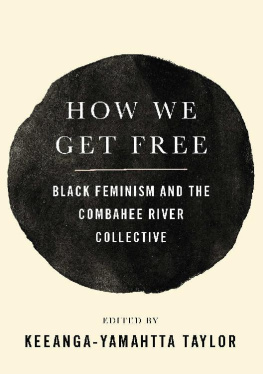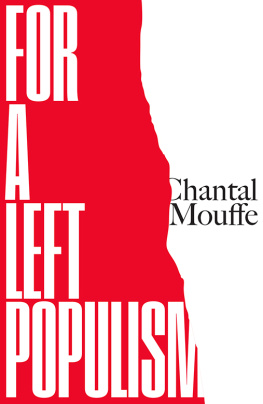Contents

Homosexuality: Power & Politics
HOMOSEXUALITY
Power & Politics
Edited by
GAY LEFT COLLECTIVE

This edition published by Verso 2018
First published by Allison and Busby Limited 1980
Allison & Busby Ltd and Gay Left 1980
Gay Left 2018
All rights reserved
The moral rights of the authors have been asserted
1 3 5 7 9 10 8 6 4 2
Verso
UK: 6 Meard Street, London W1F 0EG
US: 20 Jay Street, Suite 1010, Brooklyn, NY 11201
versobooks.com
Verso is the imprint of New Left Books
ISBN-13: 978-1-78873-240-6
ISBN-13: 978-1-78873-241-3 (UK EBK)
ISBN-13: 978-1-78873-242-0 (US EBK)
British Library Cataloguing in Publication Data
A catalogue record for this book is available from the British Library
Library of Congress Cataloging-in-Publication Data
A catalog record for this book is available from the Library of Congress
Printed in the UK by CPI Group
Contents
The three words in out title encompass the range of concerns that have dominated the work of Gay Left since its foundation. We have always been concerned with the ways in which power has shaped our notions of homosexuality and resulted in a sustained sexual oppression. We have therefore sought a politics that can decisively resist and subvert that oppression.
The articles collected here do not provide an answer or a readily understood programme for some mass gay movement. They are exploratory and often tentative in form. They are designed to open up areas for intellectual and political debate rather than to foreclose discussion. They do not, moreover, represent a common political approach. Our unity comes not from holding to a set of revealed truths, but from our willingness to challenge old assumptions and investigate new responses to our situation. This open attitude has always been central to our work in Gay Left.
The first issue of the journal appeared in the autumn of 1975. The collective which produced it grew out of a gay male discussion/consciousness-raising group which began meeting in 1974. Some of this group had a background in the London Gay Liberation Front (GLF) and had been involved in a series of Gay Marxist discussion groups which had produced an irregular bulletin. By 1974 both the GLF and the Gay Marxist group had effectively disintegrated. Some of the latter group continued to meet, and were joined by other men who were entering the gay movement. These men constituted the beginnings of the Gay Left collective. By 1975 we had decided to work towards a new journal and by Easter of that year we had prepared an outline of what became our first collective policy statement.
It is difficult to recreate our sense of what was needed at the time. There was certainly a strong feeling that the gay movement lacked coherence and unity. However, we never saw ourselves as in any way attempting to make up for that lack. But what we did feel to be necessary was a serious discussion of the problems and a forum and focus to which gay socialists could relate. Gay News and Sappho provided a focus for the growing sense of a gay community, though working within obvious limits; other magazines were satisfying more specialised, even esoteric, tastes. We hoped Gay Left would help to create a new climate where serious and accessible political writing was not an exception but the rule. With this in mind we set out to contribute to the making of a socialist current in which sexual politics were central, but which did not ignore wider political relations.
Our first collective statement reflected that ambition. But when we re-read it now, what stands out is our desire then to integrate homosexuality into an existing socialist discourse. The result was a heavy reliance on an economistic form of marxism in which we tended to see homosexual oppression as a necessary effect of the capitalist organisation of patriarchy and the family. That analysis served a purpose in drawing our own and our readers attention to our endeavour: to find a socialist theory of sexual oppression and to broaden the Lefts awareness of sexual issues. But as a theory it was narrow and limiting, a statement of belief rather than an analytic tool. Subsequent collective statements and many articles, both by members of the collective and by other contributors, have sought to broaden our theoretical approach.
The journal has sought to cover a wide range of issues relating to sexual politics: the formation of the gay subculture and our experience of it; the tensions in the notion of the personal is political; and discussions of the cultural representations of homosexuality. In developing these concerns we have been prepared to examine and integrate ideas from diverse sources the womens movement, Gramsci, Freud, and Foucault, as well as our own experiences. We have tried not to slavishly follow fashions in High Theory, but have attempted to be alive to theoretical breakthroughs and use them to enrich our work and analysis. We have increasingly moved away from our earlier simplistic and functionalist approach to one where we see the task as the understanding of the varied mechanisms by which homosexuality is constructed as a repressive category in our culture.
We have never, however, wanted to offer a global theory. Indeed, for the conventional Left, many of our concerns may have seemed microcosmic. But we have always firmly believed that the phrase the personal is political demands a recognition that the personal is fundamentally shaped by social and historical forces and is not a natural given. So an exploration of what is conventionally regarded as private life can often lead to wider insights into social processes. Like a torchlight in the dark, it can cast a powerful beam of light at major structural features. And in this, of course, the experiences we have started with as a collective have been those of gay men.
We have always been an all-male collective. In the early days and issues of the journal this occasioned much debate because as socialists and pro-feminist gay men we had a strong sense of our solidarity with women. However, the collective had developed as a homogeneous and closed group of gay men in response to the real division of interests and activities that existed between gay men and lesbians with the demise of GLF, with most lesbians seeing their focus of concern within the womens movement. Also, with our prehistory as an all-male consciousness-raising group it seemed appropriate to utilise the sense of common purpose and trust thus developed as the basis for personal and political explorations and to provide coherence for the journal. We have none the less sought and included articles by women in the journal and have worked with lesbians in organising conferences and other activities.
We have not sought to be the exclusive mouthpiece of the gay left, nor to offer a comprehensive coverage for all aspects of the gay movement. We have begun with ourselves, with what we and many others felt necessary. In doing so we hope to have contributed to the creation of that socialist and radical culture which is a necessary component of wider social transformations.
Homosexuality: Power & Politics continues that range of concerns and attempts a deeper and more sustained analysis of them. Many of the topics covered by the essays in this book have been introduced in various issues of the journal: the personal experiences of lesbians and gay men; the ways of life of gay people; the historical and social sources of sexual oppression; the patterns of gay culture; the construction of arbitrary social categories (homosexuality, femininity etc.); the patterns of resistance and the organisational forms of political movements.

